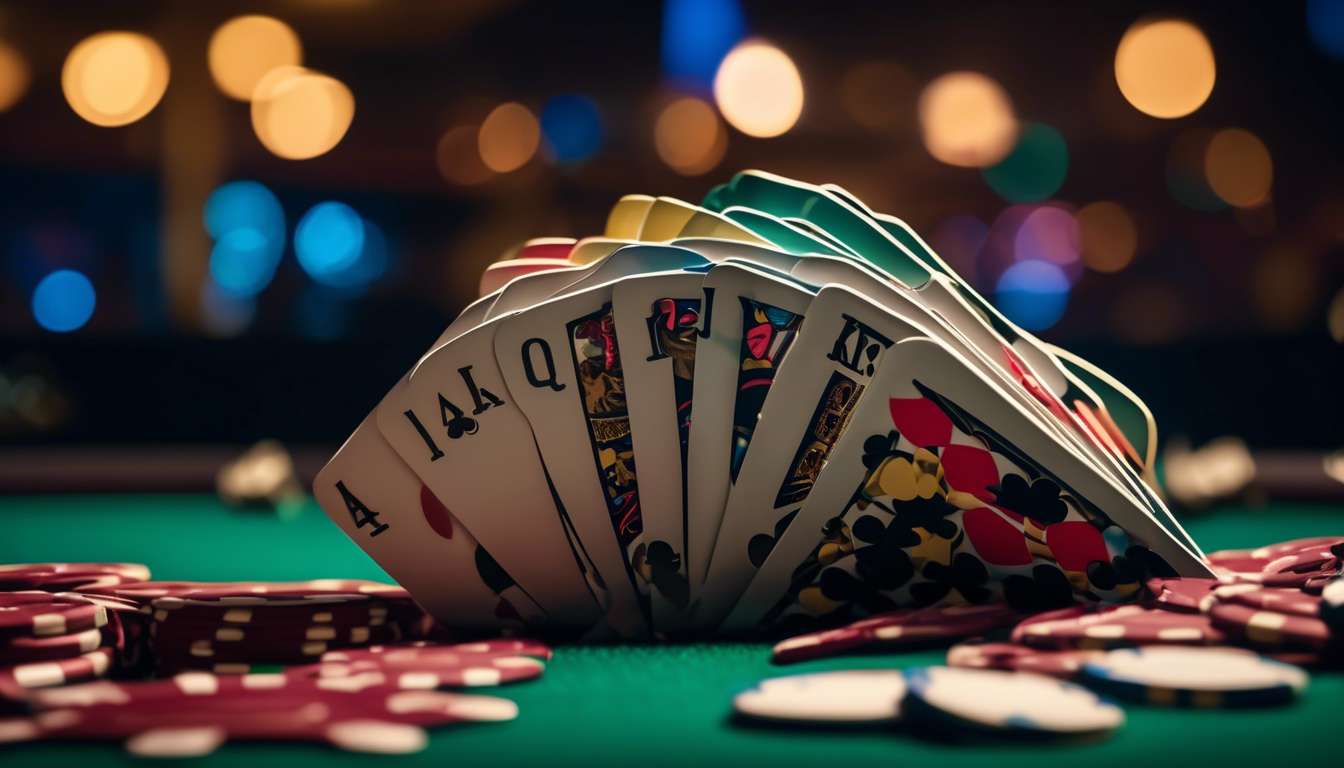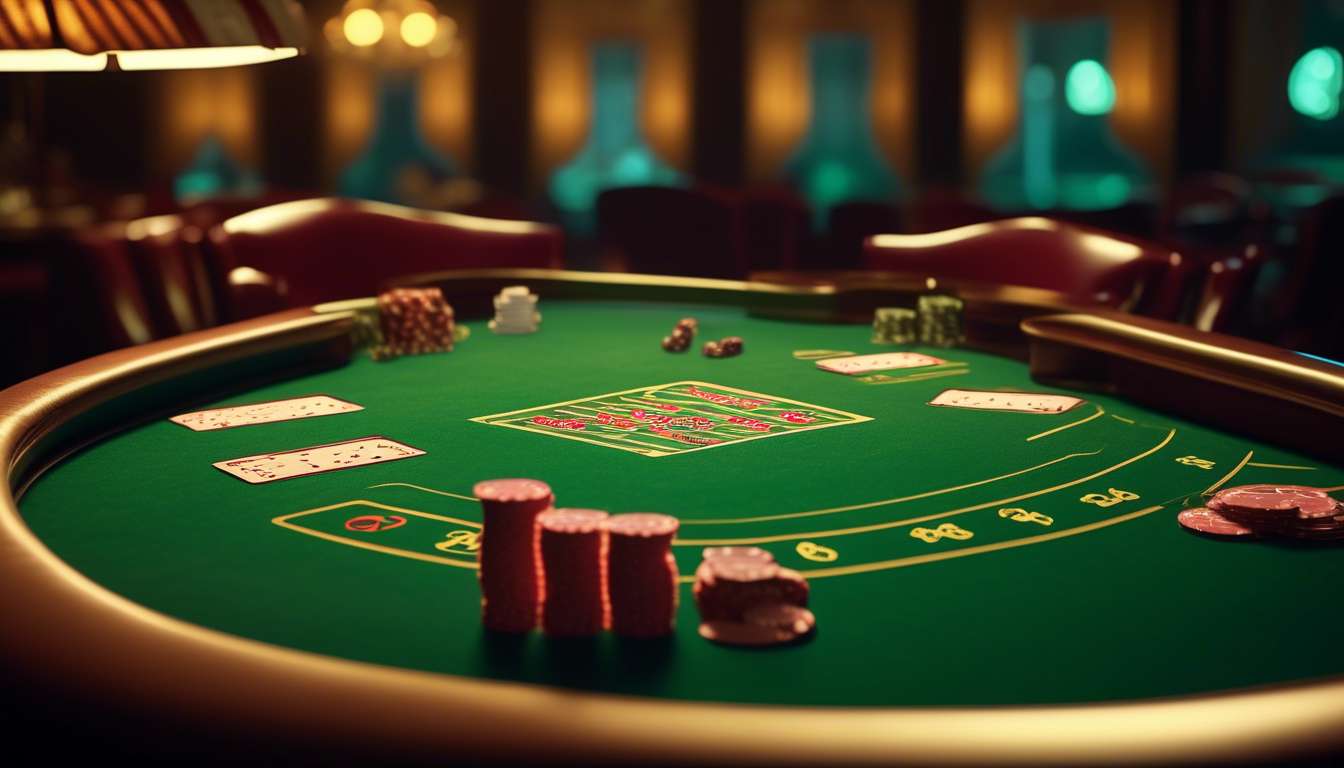When we first dipped our toes into the exhilarating world of poker, we quickly realized that success at the table requires more than just luck. As enthusiasts eager to refine our skills, we’ve spent countless hours analyzing strategies, learning from top players, and honing our instincts. Through this journey, we’ve discovered that improving our winning odds involves a blend of psychology, mathematics, and intuition.
In this article, we aim to share the top poker tips that have significantly boosted our confidence and performance. Together, we’ll explore essential strategies:
-
Mastering the Art of Bluffing
- Learn when and how to bluff effectively.
- Understand the risks and rewards associated with bluffing.
-
Understanding the Importance of Position
- Recognize how your position at the table influences your strategy.
- Adapt your play based on whether you’re in an early, middle, or late position.
-
Bet Sizing
- Adjust your bet sizes strategically to control the pot.
- Use bet sizing to manipulate your opponents’ perceptions.
We’ll also delve into the mental aspects of the game, such as:
-
Maintaining Composure Under Pressure
- Develop techniques to stay calm and focused during intense moments.
-
Reading Our Opponents Effectively
- Observe and interpret opponents’ behaviors and betting patterns.
- Use psychological insights to anticipate their moves.
Whether we’re seasoned players or just starting, these insights promise to elevate our game and increase our chances of coming out on top.
Mastering Bluffing Techniques
Bluffing is an essential skill in poker, allowing us to deceive opponents into making costly mistakes. Together, we can master this art by understanding how our actions and expressions can influence our opponents’ decisions.
Positioning at the Table:
- Being in a late position gives us more information about our opponents’ actions.
- This position makes it easier to decide when to bluff effectively.
Reading and Concealing Tells:
- Tells are subtle clues that might reveal the strength or weakness of our hand.
- By observing our opponents closely, we can identify their tells and use this information to our advantage.
- At the same time, we must control our own tells to ensure we don’t inadvertently give away our intentions.
By focusing on these aspects, we strengthen our bond as a poker community. Sharing insights and learning from each other’s experiences helps us become more effective at bluffing and ultimately improves our overall game strategy.
Importance of Positioning
Our seating at the poker table significantly impacts our strategy and decision-making process. Positioning isn’t just about where we physically sit; it’s a powerful tool in our poker arsenal.
Advantages of Later Positions:
- When we sit in later positions, we gain the advantage of observing other players’ actions before making our moves.
- This insight allows us to adjust our strategy effectively, whether it’s bluffing or playing more conservatively.
Challenges of Early Positions:
- In early positions, we’re at a disadvantage because we make decisions with less information.
- Understanding this can prevent us from making unnecessary bluffs.
- Noticing tells from other players becomes crucial, allowing us to gauge the strength of their hands or their inclination to bluff.
Community and Camaraderie:
As a community of poker enthusiasts, we thrive on the shared knowledge of positioning. It builds our camaraderie at the table, as we learn to read each other’s tells and adapt our strategies.
Mastering positioning strengthens our game, bringing us closer to each other and to victory.
Strategic Bet Sizing
Effective bet sizing is crucial in poker, as it directly influences our ability to control the pot and dictate the pace of the game.
When we make well-sized bets, we can cleverly disguise our hands, making it difficult for opponents to read our intentions. Our strategic approach to bet sizing can transform a simple bluff into a convincing story, especially when paired with our positioning at the table. Being in a late position allows us to gather information from opponents’ actions, enhancing our ability to determine suitable bet sizes.
We must also pay close attention to our opponents’ tells, those subtle cues that reveal their hand strength or strategy. By adjusting our bet sizes based on these tells, we can manipulate the game to our advantage, forcing opponents into tough decisions.
This shared understanding of strategic bet sizing creates a sense of belonging among us, the poker community, as we strive for mastery together. Let’s make every chip count, enhancing both our strategy and camaraderie.
Maintaining Composure
Keeping our cool at the poker table is essential for making rational decisions and outsmarting opponents. We’ve all experienced moments where our heart races and hands tremble. However, staying composed helps us:
- Think clearly
- Assess our positioning
- Decide when bluffing is the right strategy
A calm demeanor prevents us from giving away tells—subtle clues that might tip off opponents to our hand strength.
In our poker community, maintaining composure is like a shared secret weapon. When mastered, it becomes easier to:
- Execute a successful bluff without hesitation
- Enhance our strategic positioning
By staying collected, we send a message of confidence and control to others at the table, which strengthens our sense of belonging among seasoned players.
Ultimately, it’s not just about the cards we’re dealt, but how we handle ourselves under pressure, enhancing our overall poker experience together.
Reading Opponents’ Behavior
Observing our opponents’ behavior closely allows us to gain valuable insights into their strategies and potential hands. As we gather around the poker table, we become a part of a community that thrives on subtle signals and shared experiences.
Positioning is crucial in poker. By focusing on positioning, we can determine how our opponents’ plays change based on their seat, revealing their comfort or discomfort with their hand.
Tells are important cues:
- Pay attention to any tells they might inadvertently display, such as a nervous twitch or a sudden change in demeanor.
- These cues can be invaluable when deciphering whether they’re holding strong cards or merely bluffing.
Inconsistencies in actions should raise questions:
- Are they attempting to deceive us?
- Are they reacting genuinely to the game?
By staying vigilant, we can adapt our strategies, enhancing our ability to make informed decisions.
Together, we refine our skills and share in the excitement of outsmarting our opponents, strengthening the bonds of our poker community.
Psychological Insights
Understanding the psychological dynamics at play in poker can significantly boost our ability to predict opponents’ moves and make strategic decisions. Poker is as much about reading people as it is about the cards in our hands.
Bluffing is a key psychological tactic:
- By mastering the art of bluffing, we can create psychological pressure.
- This pressure often forces our opponents into making mistakes.
- It’s not just about the cards we hold; it’s about making others believe in the story we’re telling.
Positioning is another crucial psychological aspect:
- When we’re in a later position, we have the advantage of observing our opponents’ actions before making our own.
- This insight allows us to adjust our strategy based on their behavior.
- It enhances our decision-making process.
Paying attention to tells—those subtle cues and involuntary reactions—enables us to gather valuable information about our opponents’ hands.
By being part of a community that understands these psychological elements, we enhance our game and increase our chances of success together.
Adapting to Table Dynamics
As poker players, we must continually adapt to the ever-shifting dynamics of the table to maintain our competitive edge. We become part of a community of strategists, each trying to outwit the other. Our ability to read the room and adjust our tactics is crucial.
Positioning is key; sitting in late position gives us the advantage of observing others’ actions before we decide our move. This insight allows us to bluff effectively, using the information gathered from our opponents’ actions.
We should always be aware of the tells our fellow players might unknowingly reveal. These subtle cues can inform us when someone’s bluffing or genuinely holding a strong hand. By keenly observing these dynamics, we can shift our strategy accordingly:
- Tightening up our play
- Exploiting weaknesses
Remember, poker is not just about the cards we hold, but also about our capacity to read and adapt to the ever-changing table dynamics. Let’s embrace this challenge together.
Capitalizing on Tells
Keen observation of our opponents’ subtle behaviors can provide a significant edge in deciphering their true intentions. By learning to recognize tells—those involuntary gestures, expressions, or changes in demeanor—we can gain insights into whether they’re bluffing or holding a strong hand.
This shared understanding among poker enthusiasts creates a sense of camaraderie at the table as we decode these signals together.
Positioning ourselves strategically enhances our ability to spot tells. When seated later in the betting order, we have the advantage of observing our opponents’ reactions before making our own decisions. This extra information allows us to:
- Make more informed choices.
- Adjust our strategy accordingly.
We should also remember that tells aren’t foolproof. Experienced players may intentionally give off misleading signals to throw us off their trail. Our task is to:
- Remain vigilant.
- Constantly refine our ability to distinguish genuine tells from deliberate misdirection.
By doing so, we enhance our collective game and boost our winning odds.
Conclusion
In conclusion, by mastering bluffing, strategic bet sizing, and reading opponents, you can significantly improve your poker game.
Key Strategies to Enhance Your Poker Game:
-
Positioning:
- Understand the importance of your seat at the table.
- Use your position to make informed decisions.
-
Composure:
- Maintain a calm demeanor to avoid giving away tells.
- Make better decisions by staying composed under pressure.
-
Psychological Insights:
- Pay attention to opponents’ behaviors and patterns.
- Adapt to table dynamics to exploit opponents’ tells.
With practice and focus on these key tips, you can enhance your winning odds and become a more successful poker player.




